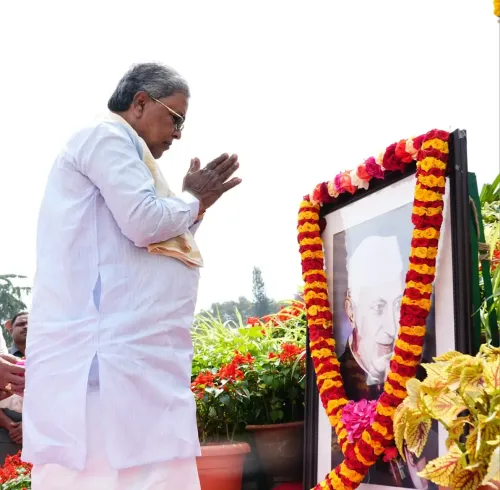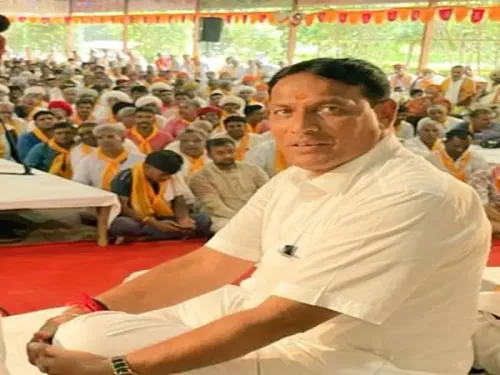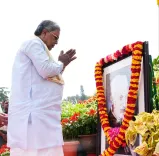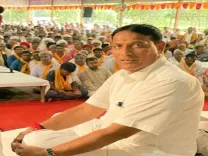Is Tejashwi Yadav Treating Muslims as a Vote Bank?
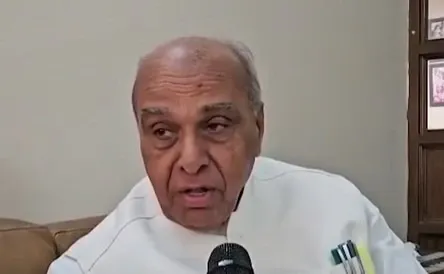
Synopsis
Key Takeaways
- Political Integrity: The need for respectful political discourse.
- Community Representation: The importance of genuinely representing community interests.
- Waqf Law Significance: Understanding the implications of the Waqf Law for the Muslim community.
- Sachar Committee Findings: The socio-economic conditions of Muslims must be addressed.
- Electoral Dynamics: The role of vote banks in shaping political strategies.
Mumbai, July 2 (NationPress) BJP MP Jagdambika Pal sharply criticized RJD leader Tejashwi Yadav for his recent statements regarding the potential 'cancellation' of the Waqf Law should the Opposition coalition gain power, accusing him of viewing Muslims simply as a vote bank.
Pal's comments followed Yadav's address at a ‘Save Waqf, Save Constitution’ rally in Gandhi Maidan, Patna, where he stated that the Opposition would dismantle the Waqf Law if they win.
“The NDA in Bihar is nearing its end, and when we take the reins of government, we will throw the Waqf Act established by Prime Minister Narendra Modi into the trash,” Yadav remarked.
In response, Pal told IANS, “Tejashwi Yadav is lost in his fantasies. The populace of Bihar has consistently turned him and his father, Lalu Yadav, down. They are exploiting Muslims for political gain. There’s a competition among them, Asaduddin Owaisi, and the Congress to win over the community for votes.”
Pal further asserted, “Opposition Leader Rahul Gandhi has disrespected the Constitution with his actions, leading to his defeat by the people of India. Now, Tejashwi Yadav is making the same error. The people of Bihar will again reject such politics. Parliament's purpose is to legislate. If there are grievances, take them to the Supreme Court. Manipulating people's sentiments will not succeed — this nation operates under law and the Constitution.”
When questioned about the implementation of the Sachar Committee’s recommendations, Pal noted that the committee was established during the Congress administration due to the unfavorable socio-economic conditions of Muslims.
“Former Chief Justice of Delhi High Court, Rajinder Sachar, indicated that Waqf properties could yield Rs 12,000 crore in revenue, yet only Rs 163 crore was reported. So, who truly benefited? Not the ordinary Muslims — it was the Waqf Board officials. Their properties have expanded significantly. The Congress and the United Progressive Alliance (UPA) neglected to implement these recommendations, but PM Modi did. That’s why they oppose it — it genuinely helps impoverished Muslims,” he explained.
Pal also condemned figures like Asaduddin Owaisi and Mamata Banerjee for their opposition to the Waqf Act.
“They are deceiving the public. If they sincerely cared, they would have voiced their concerns in Parliament or the Supreme Court. Instead, they are misleading people,” he concluded.


